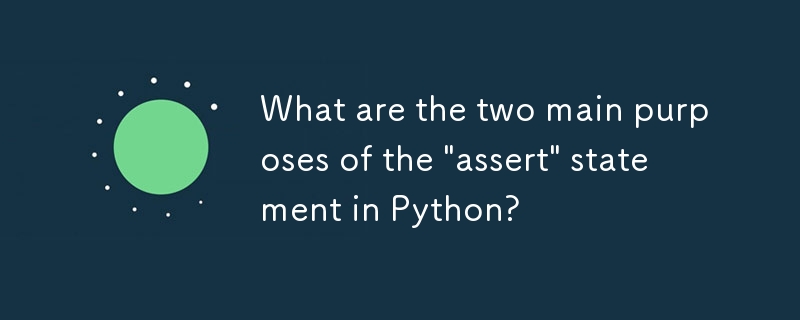Maison >développement back-end >Tutoriel Python >Quels sont les deux objectifs principaux de l'instruction « assert » en Python ?
Quels sont les deux objectifs principaux de l'instruction « assert » en Python ?
- Susan Sarandonoriginal
- 2024-11-14 21:04:02373parcourir

Understanding the Purpose of "assert" in Python
The "assert" statement is a valuable tool in Python and other programming languages. It serves two primary purposes:
-
Early Detection of Errors:
"assert" helps identify problems in your program at an early stage, before they escalate into complex issues. For example, it can detect a type error immediately, preventing it from propagating further. -
Documentation and Clarity:
Assert statements act as inline documentation, conveying to other developers that a specific condition is true and should not be broken. By asserting that a particular state is expected, you make the code more readable and self-explanatory.
To use "assert," simply follow this syntax:
assert condition
If the "condition" is true, the program continues execution. However, if the condition is false, an "AssertionError" is raised.
In Python, "assert" is similar to the following code:
if not condition:
raise AssertionError()
Example:
>>> assert True # No action performed >>> assert False Traceback (most recent call last): File "<stdin>", line 1, in <module> AssertionError
Optional Message:
You can include an optional message to be printed if the assertion fails:
assert False, "Oh no! This assertion failed!"
Note:
- Avoid using parentheses to call assert like a function. It is a statement, not a function.
- Assertions can be disabled by running Python in optimized mode (-O flag), where debug is set to False.
Ce qui précède est le contenu détaillé de. pour plus d'informations, suivez d'autres articles connexes sur le site Web de PHP en chinois!

